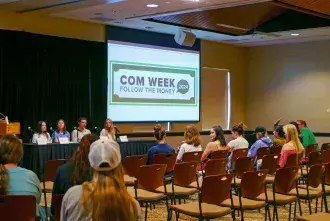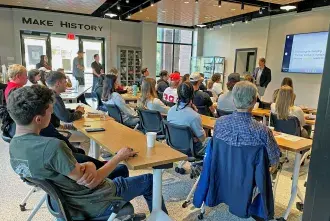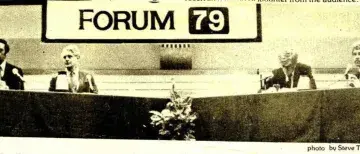
On Nov. 14, 1979, an ABC News Correspondent, former U.S. Senator, syndicated cartoon artist, and Orlando Sentinel Star editor formed a guest panel to discuss “Politics and the Media.” More than four decades later, Fritze offered insights on a strikingly similar topic, discussing his experience reporting on The U.S. Supreme Court and across Washington.
“It's my job to hold the Court accountable and to try to translate what the Court is doing, translate this highly technical legal language, into something people can understand,” Fritze said during his Forum lecture: “Still Supreme? The High Court Today.”
During his lecture, Fritze gave more than 100 attendees a rare look into the unparalleled world of Supreme Court reporting and described almost inconceivable routines of the trade.
Among the less than two dozen Supreme Court correspondents representing competing media outlets, Fritze said he is expected to turn around stories on case decision days in a matter of minutes.
“You have to get it right and you have to get it fast,” Fritze said.
It’s a common practice for Fritze to pre-write multiple versions of a decision story anticipating various outcomes and to continuously update stories after they’ve been published.
“It's got to be accurate, but it doesn't have to tell the whole story on the first take,” he said. “That's an impossible task given the timeline.”
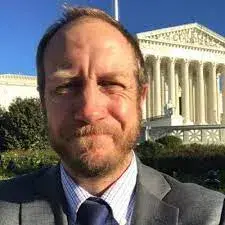
John Fritze in front of the U.S. Supreme Court
Prior to his role as the Supreme Court Correspondent at USA Today, Fritze had the opportunity to report as a Washington and White House correspondent. In comparison to the Supreme Court, he said the other branches of government present significantly different environments for journalists.
Fritze noted that both Congress and the White House, the latter of which he covered during the Trump Administration, have significantly greater incentive to talk to press correspondents with the incessant pressure of elections.
“The justices don't have that incentive,” Fritze said, noting their lifetime appointments. “They're not set up to be responsive [to the public or the press]. That's not what they're there for. Constitutionally, they weren't set up for that.”
The Supreme Court’s inaccessible and enigmatic nature is a central element of what Fritze said this job challenges him to do.
“It involves trying to peer behind the curtain in one of the most tradition-bound and opaque institutions in Washington,” he said.
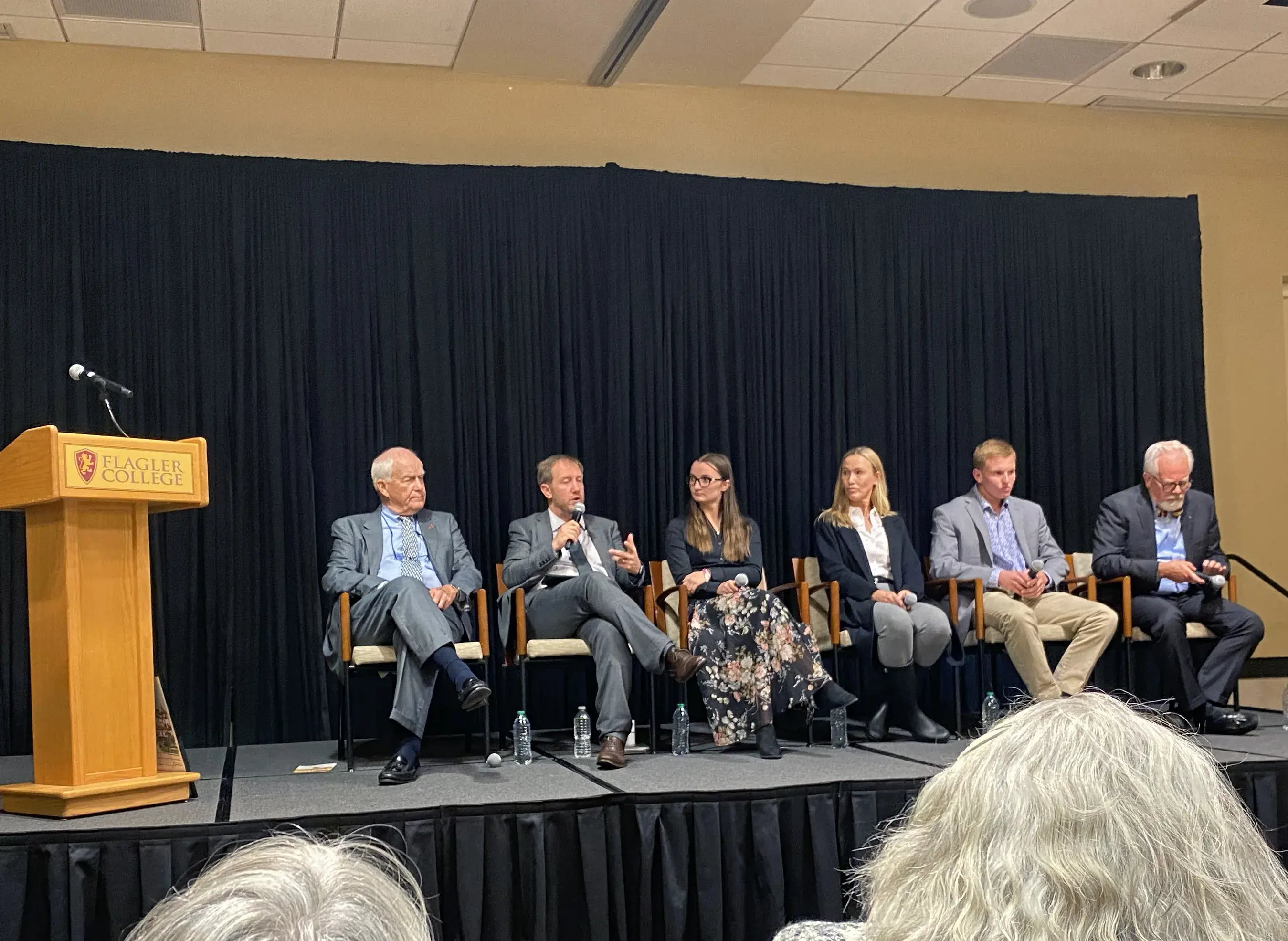
Q&A panel following Fritze's lecture
It’s a challenge Fritze said he is honored to take on.
“[This job] involves holding the justices to account just like any other government official, and it involves trying to give my readers a sense of how the decisions from these nine Americans about decisive, sometimes gut-wrenching questions are affecting the people in this country,” he said. “I'm honored to have that responsibility.”
Although he said they represent the vast minority of cases that come through the Supreme Court each term, Fritze acknowledged that there are certain cases brought to the court that stand out as poignant and politically divisive in nature. Fritze reported on several such cases during the 2022-2023 Supreme Court term, covering a range of often nationally politicalized topics.
He said this sharp divide among the American public around these high-stakes decisions might be playing a role in the Supreme Court’s near-record-low approval ratings.
“The sharp divide here I think adds fuel to the criticism that the court has become something of a political entity,” Fritze said.
Categorization of the Supreme Court bench by political party is something Fritze said the Justices “completely reject,” and a notion that runs counter to the intended relationship between the American public and the Supreme Court.
“The Supreme Court derives its power from the faith of the American people that, even if they disagree with the decision, they can live with the reasoning,” he said. “That trust is supposed to be based on a sense that the court is impartial and nonpartisan.”
But he acknowledged the public concern that the Justices’ ideologies are influencing their impartiality and jeopardizing their decision-making.
“I do think that certainly their background has to have some influence on how they shaped their ideology, how they think about these controversies, and how they think about the law,” Fritze said.
It’s a question Fritze said Supreme Court analysts like himself “wrestle with,” all the time: How much does a Justice’s personal life influence their decisions?
“[The Justices] would tell you it doesn't,” he said. “They would argue that they look at these things impartially in the same way I would tell you that I try to look at these things impartially. So, I'm sympathetic to their argument on a certain level.”
As a journalist, Fritze said he doesn’t take sides in the outcomes of these cases.
“There’s no shortage of talented opinion writers on both sides of these issues who can do the criticism and the praise,” Fritze said. “We serve a different function, and I believe it's still an important one.”

